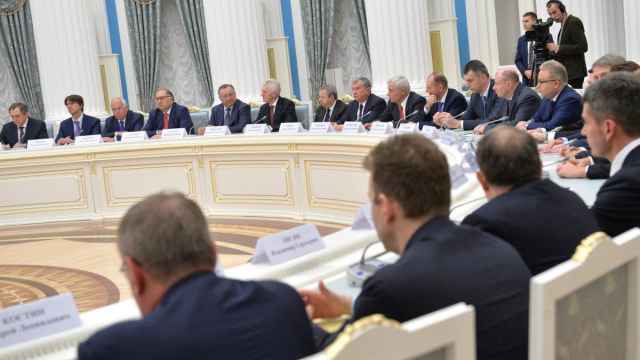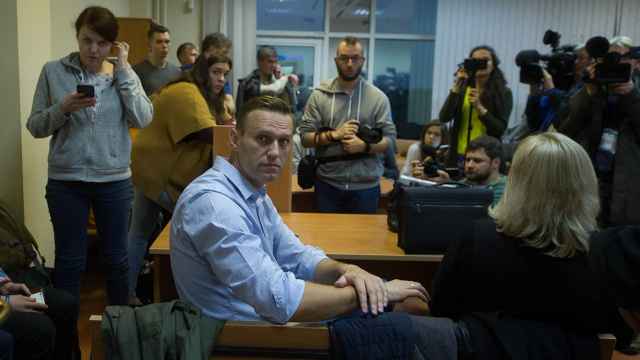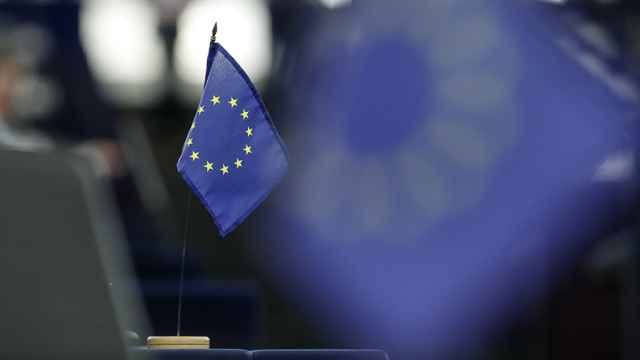The European Union on Monday agreed to move ahead with sanctions against Russian officials over the nerve agent poisoning of opposition leader Alexei Navalny, further complicating already fraught ties with Moscow.
Foreign ministers meeting in Luxembourg agreed to sanctions proposals made last week by France and Germany, which said Russia was responsible for the poisoning of Navalny with Novichok, the chemical weapon also used in a 2018 attack on a Russian defector in England.
The ministers also said they were ready to sanction Belarus leader Alexander Lukashenko, as the bloc seeks to step up pressure over his regime's crackdown on protesters.
Germany and France last week accused Moscow of responsibility for poisoning Navalny with Soviet-developed Novichok, saying "no credible explanation has been provided by Russia".
German Foreign Minister Heiko Maas welcomed Monday's decision.
"I believe it is of paramount importance in the light of such a serious crime — a violation of international law and the chemical weapons convention — that the European Union shows unity, and it has done so today," he told reporters.
EU diplomatic chief Josep Borrell said technical work would now begin, based on evidence provided by France and Germany, to prepare the sanctions listings, though he did not say how many people and entities would be targeted.
Paris and Berlin said last week they would push for sanctions targeting "individuals deemed responsible for this crime and breach of international norms, based on their official function, as well as an entity involved in the Novichok programme".
Measures related to the Navalny case will be made under the EU's chemical weapons sanctions framework, which ministers extended by a year on Monday.
Four members of Russian military intelligence were hit with travel bans and asset freezes under this framework for their role in the Novichok poisoning of ex-spy Sergei Skripal and his daughter in Salisbury, southwest England, in 2018.
The framework has also been used against Syrian officials for carrying out chemical weapons attacks on their civil war foes.
The push for punitive action in the Navalny case came after UN chemical weapons watchdog OPCW confirmed Germany, France and Sweden's finding that he was poisoned by a nerve agent from the Novichok group.
Belarus sanctions
On Belarus, Borrell said the decision to line up sanctions against Lukashenko and some members of his entourage had come in response to the "evolving situation" on the ground — and because the regime was refusing to negotiate with the opposition.
The EU has already imposed travel bans and asset freezes on 40 Lukashenko allies for rigging an election in August that returned him to power and then orchestrating a crackdown on the mass protests that have rocked the country since the vote.
Fresh clashes in Minsk on Sunday — police used water cannon and stun grenades on protesters and made hundreds of arrests — prompted ministers to take a tougher line.
"The EU stands ready to take further restrictive measures, including against entities and high-ranking officials, including A. Lukashenko," the ministers said in their official conclusions.
The previous round of sanctions over the Belarus crisis was held up for three months by Cyprus, which refused to approve them until the EU took more action against Turkey over gas drilling, but Borrell said he was confident the latest measures will not take so long.
A Message from The Moscow Times:
Dear readers,
We are facing unprecedented challenges. Russia's Prosecutor General's Office has designated The Moscow Times as an "undesirable" organization, criminalizing our work and putting our staff at risk of prosecution. This follows our earlier unjust labeling as a "foreign agent."
These actions are direct attempts to silence independent journalism in Russia. The authorities claim our work "discredits the decisions of the Russian leadership." We see things differently: we strive to provide accurate, unbiased reporting on Russia.
We, the journalists of The Moscow Times, refuse to be silenced. But to continue our work, we need your help.
Your support, no matter how small, makes a world of difference. If you can, please support us monthly starting from just $2. It's quick to set up, and every contribution makes a significant impact.
By supporting The Moscow Times, you're defending open, independent journalism in the face of repression. Thank you for standing with us.
Remind me later.






